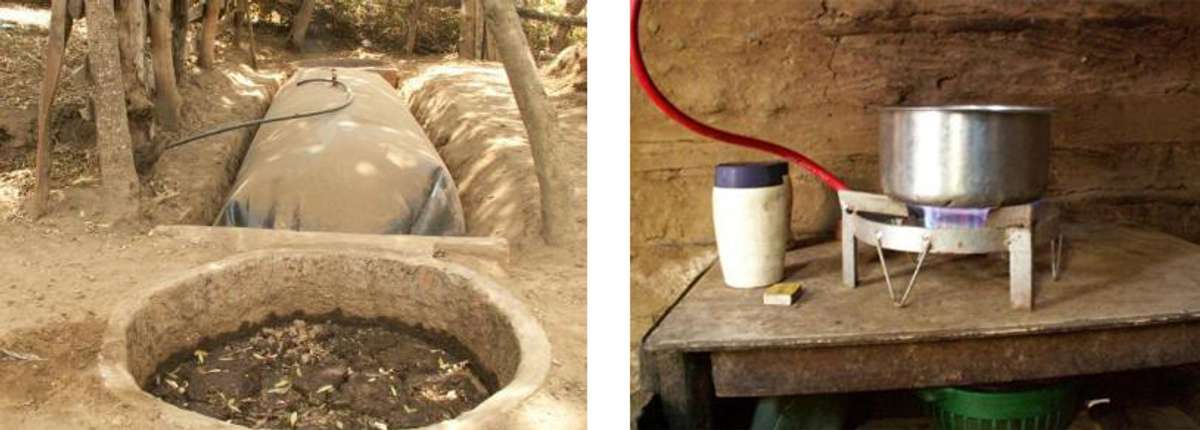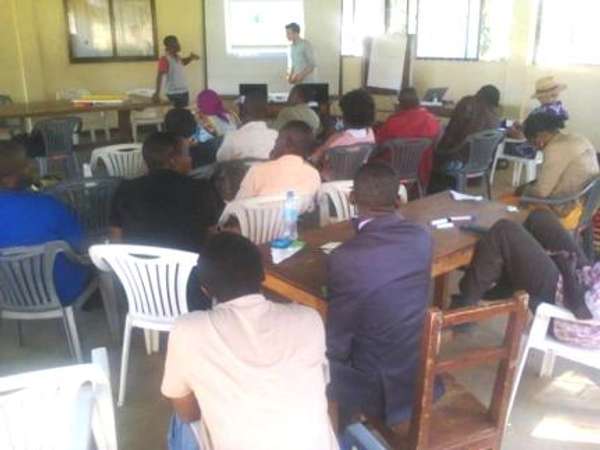In recent times biogas technology is increasingly important around the world due to the requirements for renewable energy production, the need for recycling and reuse of materials and reduction in greenhouse gas emissions. Biogas addresses all the above concerns, using renewable inputs such as animal manure, producing methane-rich gas as an output which can be used as a source of energy in various ways. Another key output of biogas is the residual material which contains all the nutrients in the original raw materials and offers a way to recycle them. Besides being renewable, biogas is a source of clean energy meaning that methane when burnt is converted into heat and carbon dioxide. The latter is a lot less harmful to the environment in terms of contributing to climate change than methane which would have been released into the atmosphere in the absence of a biogas setup.
Agricultural biogas is one of the multifunctional practices that can contribute positively to improving rural livelihoods in the East African region. First, the dependency on firewood/charcoal (or other non- renewable energy sources) for domestic cooking is partially or completely eliminated. This is a significant saving to the household which would typically use a major portion of its income on the purchase of domestic energy sources. Importantly, producing biogas in the homestead reduces the workload of women and children who would typically walk far distances in search for firewood. Bio-slurry, another important output from biogas is a source of manure which enhances production of crops and maintains soil productivity. Importantly, bio-slurry is broken down and acted upon by the microorganisms during the process of biogas synthesis thus helping to create a cleaner environment free of flies and odor. As such biogas is considered to be a low-cost sustainable practice for small farmers in the region who typically have a sustainable source of animal manure.

A new tubular biogas digester built with funds from Innovate UK at a farmer homestead near to ECHO (left). A new digester is already providing cooking fuel for the family (right).
Currently four digesters have been installed through ECHO out of which three are at the farmers homestead. Farmers are extremely happy with the biogas venture on their premises. Records show a replacement or complete substitution by biogas from charcoal/firewood for the beneficiaries. The beneficiaries who have been early adopters are becoming opinion leaders among fellow farmers/villagers in disseminating biogas practices. One demo biogas plant is within ECHO‟s appropriate technology section for easy viewing by visitors. Together these are providing important learning lessons for furthering the cause of sustainable energy production in the region.
ECHO is facilitating a year-long effort to improve efficiency of biogas plants through remote monitoring sensors, working in conjunction with four other partners, the Centre for Agricultural Mechanization and Rural Technology, Tanzania - CAMARTEC; the University of Nottingham (UoN), CREATIVEnergie, and Scene Connect Ltd from the UK. This project is funded by INNOVATE UK/DfID in collaboration with CREATIVEnergie. Sensors will monitor pressure inside the digesters (a key parameter for successful biogas production) which are simple, low-cost and can relay signals through the phone network. This will enable technicians/experts to monitor digesters remotely and identify remedial actions. The monitoring of the digesters is anticipated to increase efficiency and uptake of the technology.

At a recent Biogas Summit different stakeholders explored what remote sensing and networking can do to enhance biogas efficiency.
ECHO's ongoing efforts provide an important link between various stakeholders in the awareness and promotion of biogas. It is working together with government agencies such as the Tanzania Domestic Biogas Program along with many other local and international organizations. ECHO would like as many farmers taking up the biogas technology as possible. ECHO realizes that currently biogas is only spread through word of mouth, from farmer to farmer and person to person. ECHO would like to create awareness in the communities through printing media and online platforms using social media and mobile phones. It is anticipated that biogas practice adoption will lead to generating local employment in the form of technicians, biogas installers, entrepreneurs, financers and conveyers in the cause for sustainable energy production in the region. ECHO is happy to further collaborate with anyone interested in the application of biogas technology to optimize the benefits and improving rural livelihoods in East Africa.